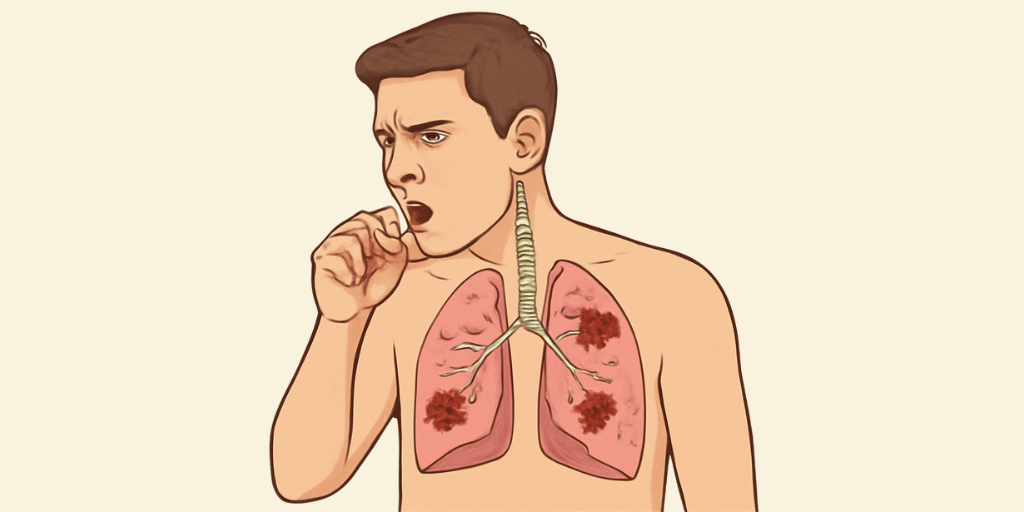Ayurvedic Name: Rajyakshma
Description:
Rajayakshma is a term for tuberculosis or chronic pulmonary disease, characterized by persistent cough, night sweats, fever, and weight loss. It is considered a severe depletion of Ojas and Prana Vayu, affecting lung function. Ayurveda prescribes Rasayana therapy, including Chyawanprash, Vasaka, Guduchi, and Swarna Bhasma, along with dietary and lifestyle changes to boost immunity and respiratory health.
Signs & Symptoms:
- Rajayakshma (Tuberculosis): Persistent cough with blood-tinged sputum, weight loss, and fever.
- Kasa (Cough): A chronic, persistent cough that worsens over time.
- Shwasa (Breathlessness): Difficulty breathing, especially during exertion or in severe cases.
- Dourbalya (Weakness): Extreme fatigue and weakness, commonly seen in advanced stages of the disease.
- Rukshata (Dryness): Dryness in the chest and throat due to continuous coughing.
- Agnimandya (Poor Digestion): Loss of appetite and poor digestion due to systemic infection.
Diagnosis:
Chest X-ray, Sputum AFB Test, and Mantoux Test
Risk Factors:
- Dietary Factors
Poor Nutritional Intake: A diet low in essential nutrients weakens the immune system, making it harder to fight off infections like tuberculosis.
Alcohol Consumption: Excessive alcohol consumption can impair the liver and immune function, increasing the risk of infections. - Lifestyle Factors
Poor Hygiene: Lack of proper sanitation and hygiene increases the risk of contracting tuberculosis, especially in crowded areas.
Weakened Immune System: Conditions like HIV/AIDS or diabetes can increase susceptibility to tuberculosis. - Medical Conditions
HIV/AIDS: A compromised immune system makes individuals with HIV/AIDS more vulnerable to tuberculosis.
Chronic Respiratory Infections: Previous lung diseases, such as pneumonia, increase the risk of tuberculosis developing in the lungs.
Complications:
- Lung Damage (Shwasa Kshaya): Untreated tuberculosis causes progressive lung tissue damage, leading to scarring and impaired lung function.
- Cough with Blood (Rakta Kasa): Advanced tuberculosis can cause coughing up of blood due to extensive lung damage.
- Chronic Fatigue (Dourbalya): Tuberculosis can lead to extreme tiredness and weakness, reducing daily productivity.
- Immune System Suppression (Pratirodh Kshaya): Chronic TB weakens the immune system, making the body more susceptible to other infections.
- Organ Failure (Anga Vikruti): If tuberculosis spreads beyond the lungs (extrapulmonary TB), it can affect other organs like the kidneys, spine, or brain.
Epidemeology:
Affects approximately 10 million people annually worldwide, with India, China, and sub-Saharan Africa having the highest prevalence rates.
Higher incidence in immunocompromised individuals, such as those with HIV/AIDS, or those living in overcrowded or poor sanitation conditions.
Peak incidence in individuals aged 15-45, though it can affect all age groups.
Global prevalence has been declining due to improved diagnostics, treatment, and vaccination programs, but still remains a major health concern in certain regions.

